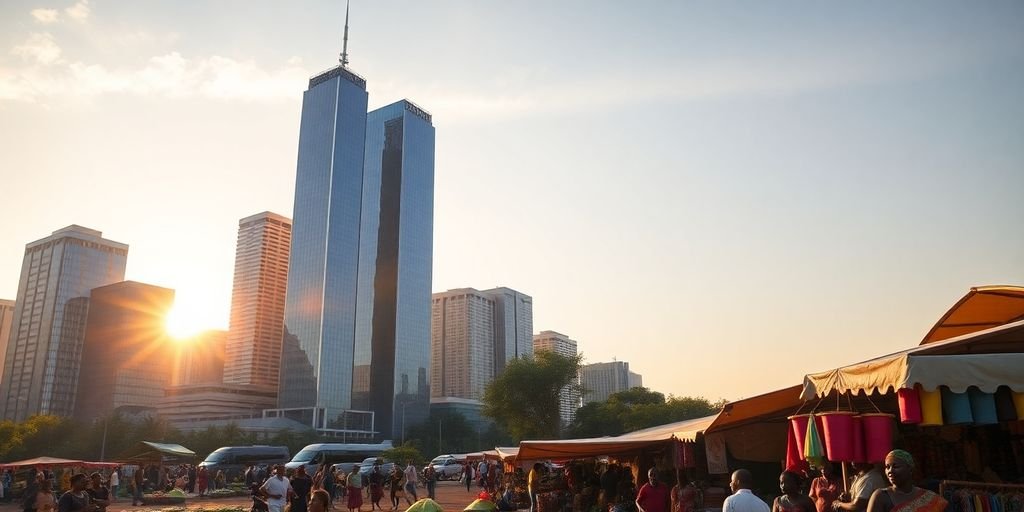The United Arab Emirates (UAE) is rapidly expanding its economic footprint across Africa, becoming a dominant foreign investor. This strategic push, driven by a desire for economic diversification and global influence, involves significant investments in critical sectors such as renewable energy, infrastructure, and mining, reshaping the continent’s economic landscape.
UAE’s Growing Investment in Africa
The UAE has emerged as Africa’s leading foreign direct investor, surpassing traditional players like China, the EU, and the US. Since 2019, Emirati companies have announced deals worth an estimated $110 billion, with a substantial portion, $72 billion, allocated to renewable energy projects. This surge in investment reflects the UAE’s strategic vision to diversify its oil-based economy and establish long-term partnerships.
Key Investment Sectors
Emirati investments are concentrated in several key areas:
- Renewable Energy: The UAE is heavily involved in solar, hydraulic, and geothermal energy projects across Angola, Uganda, Republic of Congo, Kenya, and Mozambique. Companies like Masdar and AMEA Power are leading the charge, aiming for 10 GW of installed capacity by 2030.
- Infrastructure and Logistics: DP World, a UAE-based logistics giant, is making significant investments in port facilities and operations across the continent, creating crucial trade corridors. The UAE’s expertise in urban infrastructure development is also being leveraged.
- Mining and Resources: Emirati companies are actively involved in extracting critical minerals such as copper, cobalt, nickel, graphite, and lithium. A notable example is the International Holding Company’s (IHC) acquisition of a 51% stake in Zambia’s Mopani Copper Mines.
Strategic Motivations and Concerns
The UAE’s investment strategy is driven by several factors:
- Economic Diversification: Reducing reliance on oil and gas revenues by investing in new growth markets.
- Global Influence: Expanding its geopolitical reach and securing supply chains, particularly in critical minerals.
- Food Security: Acquiring agricultural land in various African nations to ensure food supply for the Gulf region.
However, this rapid expansion has also raised concerns:
- Labor Practices and Environmental Standards: Questions persist regarding the adherence to local labor laws and environmental regulations in some UAE-backed projects.
- Illicit Trade and Conflict: Reports suggest that some UAE activities, particularly in the gold trade, may inadvertently fuel illicit flows and conflicts in regions like Sudan.
- Sovereignty and Dependency: Some African policymakers express caution, urging governments to establish robust frameworks to protect local interests and avoid undue influence or hidden dependencies.
Cautious Optimism and Future Outlook
Despite the concerns, there is cautious optimism among African nations regarding UAE investment. Many view it as a refreshing alternative to traditional donor countries, offering a focus on infrastructure, mining, and energy that directly benefits the continent’s development. Experts emphasize the need for transparent contracts and local value addition to ensure these investments truly serve Africa’s long-term interests. The UAE’s technological expertise, financial power, and logistics capabilities hold significant potential to integrate African economies into global trade and address critical development gaps.
Sources:
- U.A.E. Is Pouring Money Into Africa, Seeking Resources and Power, The New York Times.
- UAE strengthens its role as Africa’s leading investor {Business Africa}, Africanews.
- UAE’s Africa push prompts cautious optimism, African Business.
- Trade between the UAE and Africa: The growth of a key economic expander?, African Law & Business.
- UAE in Africa : Imperial Outpost, Borkena.
